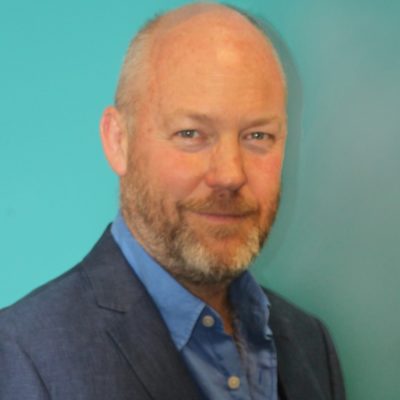Phil Champain
Phil is a Circle Square member and Director of Faith & Belief Forum (F&BF), aimed at strengthening relations between people of different faiths and beliefs. F&BF has a strong education focus and prides itself on community-based programmes with lived faith and storytelling at its heart. Here Phil recounts his own story of a rewarding and diverse career in peacebuilding that took him all over the world but brought him home.
“As a Cambridge University graduate, my education and environment came with high expectations. But I took an early decision to walk away from what felt like a pre-ordained corporate career. Having applied for a job at Shell, I promptly turned it down, instead training as a secondary school teacher at Bangor University in North Wales. I went on to teach for seven years, including three years in Papua New Guinea with Voluntary Service Overseas. It was this experience that shaped what came next.
Living and working in Papua New Guinea’s remote mountain foothills, I was exposed to the realities of politics surrounding economic development. Compared to the theoretical explorations during university, here I was living in a ‘developing’ country where I began to realise how much I didn’t know – it took on a new significance for me.
Returning to London, I realised life could never be the same and so I started a career in the not-for-profit sector with the World Wide Fund for Nature (WWF-UK), working with teachers on education for sustainability. My teaching skills were put to good use but I also waded into the politics of environmentalism, fighting to get environmental education into the school curriculum. Over time, the constant clashing of ideas and the need to address conflicts, for example with the fishing community over quotas, raised questions as to how you work through differences.
This led me to join International Alert in 1997 just as the peace building sector took off. The fall of the Berlin Wall and collapse of the Soviet Union (USSR) gave rise to new conflicts, including a resurgence of national identity by many ex-USSR countries. One of my first roles was as facilitation and training manager, facilitating dialogue in the South Caucasus between oil companies in Azerbaijan, who were stuffing the coffers of an authoritarian regime, and local groups. The irony wasn’t lost on me – I could easily have been sitting on the other side of the boardroom table had I taken a career path at Shell and yet, here I was talking to them about their impact on communities and how to set principles around business conduct.
These were hard conversations. Behind the scenes, we were creating new ways of looking at things and moving towards resolving systemic conflicts. A longstanding engagement in the Philippines, working in Mindanao, stands out for me – a Muslim stronghold in a Catholic country, blighted by conflict, displacement, poverty, a shadow economy, clan politics and intercommunal tensions. Working in Lebanon, we took a delegation to meet Desmond Tutu to learn from South Africa’s transition from apartheid. These were rich experiences which taught me the golden rules of peace building: dialogue, imagination, and sustained engagement.
If the fall of the Soviet Union shaped the conflict landscape of the 1990s, 9/11 and then the Arab Spring followed in the 2000’s, as catalysts for further changes. The world view of Muslims and the Islamic world shifted and so did the whole peacebuilding sector. By this point, as Director of Programmes for International Alert, I was growing increasingly uncomfortable with the notion that conflicts were ‘over there’ and not so much an issue in the Northern Hemisphere. I was also interested in why the peacebuilding sector tended to avoid engaging with religion. I was drawn to the vulnerabilities of peace in communities across the UK and I wanted to put my experience to work back home.
Joining F&BF in 2015 fulfilled this need and presented a new challenge. My previous peacebuilding work was largely framed as secular, but I was keen to understand the role of faith in our communities. FB&F encompasses all faiths and beliefs, including non-religious and we focus on supporting young people in how to understand and engage with richly diverse identities – in schools, universities, communities, and workplaces. In doing so, we reduce prejudice and hate and create empathy that helps tackle social issues. I’m so proud of our work in communicating to policy makers, government, and local authorities that understanding faith and belief identity is an important part of social cohesion and ultimately, peace building. We’re ambassadors advocating that this understanding is important – don’t be afraid of it but use it as a force for good. By combining education, peacebuilding and faith my career really has come full circle.”
Share Circle Square: Member Q&A
What 3 words best describe you?
Curious, dogged, facilitative.
If you could offer your younger self one piece of advice, what would that be?
Don’t be so quick to judge.
What do you consider to be your greatest achievement?
My wife and two children still love me!
Which person (dead or alive) would you most like to invite to dinner?
David Bowie
How has age strengthened your advantage?
I have less to prove.
What inspired you to join Circle Square?
The notion of a space to generate and share ideas.


